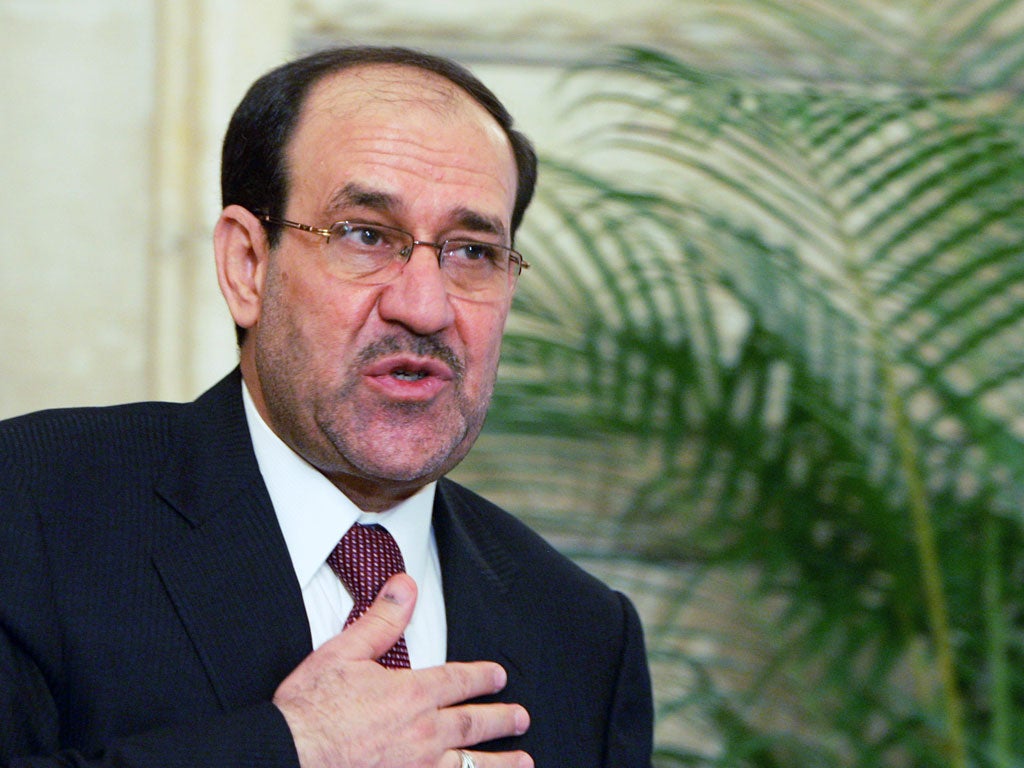Patrick Cockburn: Some say Maliki is paranoid. And it's no wonder given the violence of Iraqi politics


The Iraqi Prime Minister Nouri al-Maliki was expected to try to increase his power in the wake of the final US troop withdrawal this month. But his unexpected decision to provoke a political crisis immediately by ordering the arrest his own Vice-President on terrorism charges may weaken his rule and destabilise Iraq.
Mr Maliki had just been in Washington where he presented himself as the national leader of Iraq and not just of the Shia majority. But within hours of his return to Baghdad, he ordered the arrest of the most senior Sunni leader, Tariq al-Hashemi, whose bodyguards were put on state television to confess that they had been paid by the Vice-President to carry out killings.
Those with close ties to the Iraqi government suggest that the simplest explanation for Mr Maliki's action is that he is extremely paranoid. Kamran Karadaghi, the former chief of staff of President Jalal Talabani, who attended many meetings with Mr Maliki, told The Independent: "He is really obsessed with the idea that there are plots, and particularly against himself. This came up at many meetings. You feel that he really believes in these conspiracies against him – mainly by the Baathists."
Instead of stressing national unity, Mr Maliki has alienated the Sunni minority and angered the Kurds, who form an essential part of the Iraqi government. Leaders from both communities have previously denounced Mr Maliki's dictatorial tendencies since he became Prime Minister in 2006. He has also damaged Barack Obama who had been intending to emphasise in the presidential election his success in withdrawing US troops, leaving behind a democratic and stable Iraq.
Mr Maliki's paranoia may have some justification, given that Iraqi politics at every level is very violent and no doubt plots and conspiracies against him do exist. Moreover, Mr Maliki, aged 61, has spent much of his life in the Islamic Dawa, the Shia religious party, membership of which meant torture and execution if unmasked under Saddam Hussein. Not surprisingly, the mentality of its surviving members makes them suspect that they are threatened by potential traitors. Mr Maliki spent much of his life in exile after being forced to flee Iraq in 1979 and lived in Iran and Syria until the US invasion and the overthrow of Saddam Hussein in 2003. The Shia hold on power in Iraq may appear unbreakable, but the community fears a counter-attack by its old enemies.

Join our commenting forum
Join thought-provoking conversations, follow other Independent readers and see their replies